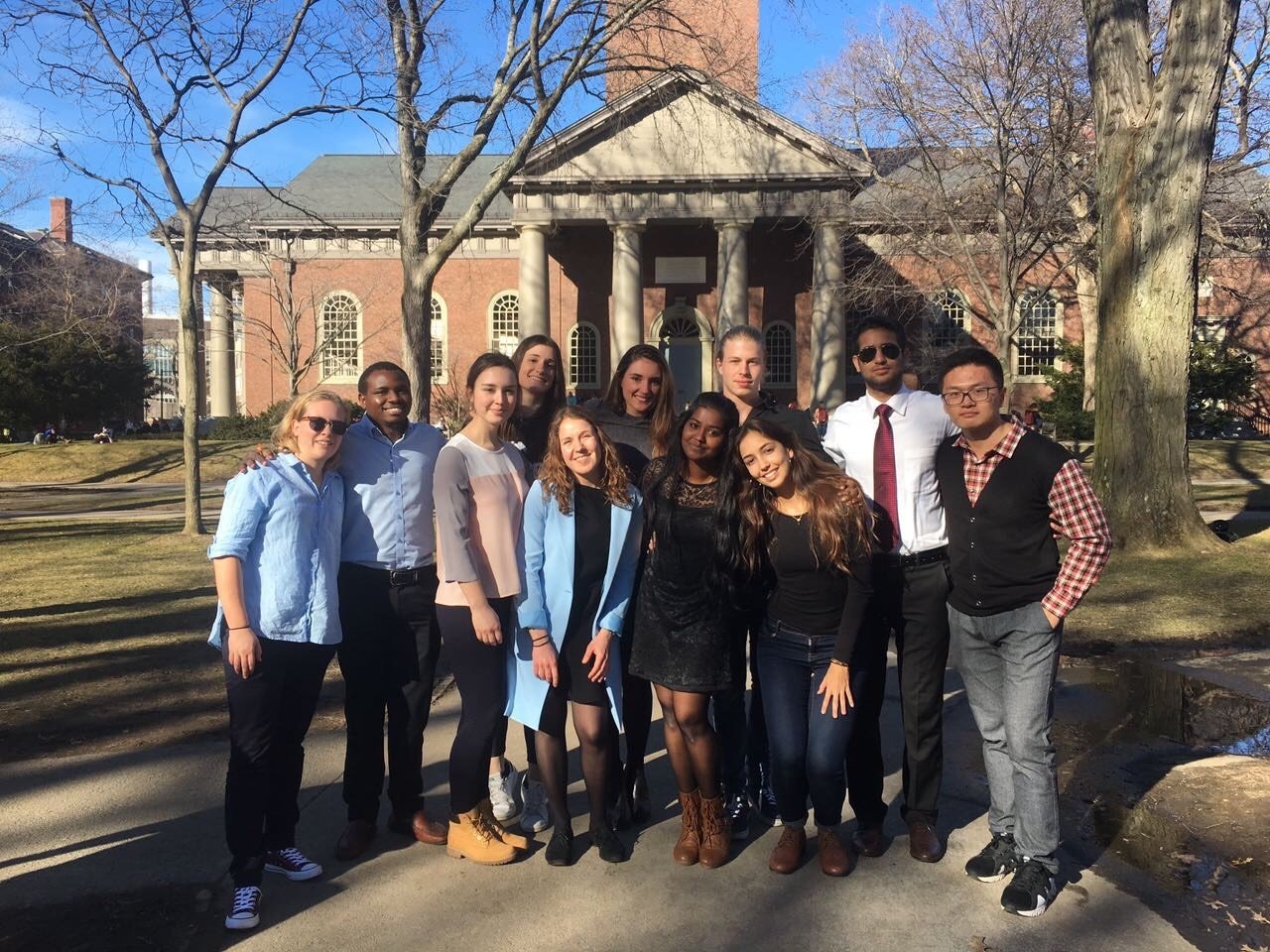
From Dar es Salaam to Harvard: Policy Research from Scratch
Our pilot welcomed us to Boston with an announcement: “We have a new president!” Most people laughed. It sounded like a joke, but this was just a few hours after Donald Trump was sworn in as the President of the United States.
I was headed to Boston to attend Harvard University for six weeks via AIESEC, an international youth-led organization that provides leadership development through exchange and internship programs. Internships are offered in education, development, technology and management.
Prior to the Boston trip and during my three years of college, I volunteered as a team member and managed a portfolio of four community development projects within the incoming exchange department of AIESEC at the University of Dar es Salaam (UDSM).
After being picked up from the airport, I was taken to my house where I met fellow researchers/housemates. I could literally see my breath as I spoke — another sign that my environment changed and I was no longer in Tanzania. I was hungry no matter how often I ate and it was the first time in my life that I had experienced jetlag.
The third surprise was the biggest shock I experienced on my first day in America. As we walked through the Government Center, we saw a huge group of people demonstrating against Trump. Their grievances were expressed straight from the heart. My peers stayed for nearly an hour observing the protest but I was afraid that something bad might happen and did not stay more than ten minutes. I saw the crowd increase and eventually saw helicopters stuck in the sky perpendicular to the crowd. What if the crowd misbehaved and the helicopters performed their peace keeping work?
I felt like I was in one of the American action movies I used to watch growing up.
My first week continued to be full of excitement and surprises. Stepping into Widener Library earned me an official Harvard Visiting Researcher Identity Card and a gateway to conducting policy research, which matters to me the most. I have a keen research interest in the collaborative role that policy can play among employers, educators and parents to enhance youth livelihoods. This has been shaped from my research experience with the Mastercard Foundation Youth Think Tank program and academic curiosity.
The next big highlight was meeting our supervisor, world renowned economist Richard B. Freeman. Though he was seated opposite the researchers in the same room, he felt miles away.
This was my first time doing policy research from scratch, starting from policy list preparation to interesting policies and programs to conduct research on. All this was done under a basic policy research manual guidance. After my policy list, I ended up with an interesting reform of Education and Training policy of 1995, Complementary Basic Education for Tanzanians (COBET).
COBET was established to allow access to education to marginalized groups because of their style of living or physical conditions, including pastoralists, fishermen, and the disabled. I reviewed the current state of the marginalized groups according to their style of living.
This experience offered me key learnings on things to consider when doing basic policy research: preparation of a policy list, its intense literature review and learnings from fellow researchers. Fellow researchers introduced me to the practice of deploying Latex and Mendeley report preparation applications. My key learnings were that latex helps in organizing the report flow and Mendeley helped in citation organization. Our learning was made diverse through access to interesting classes. I went to Analyzing Educational Policies and Using Analytical Frameworks for Smart Policy Design graduate classes. They were fun and interactive which made it easy to understand theory and connecting it to practice.
I am a firm believer in the power of networking. Utilizing my time well, I extended my professional network within and outside of Harvard. It ranged from AIESEC alumni from the 90s to consultancy entrepreneurs. I was being strategic and realized that from them, I will learn more on both quantitative and qualitative analytics.
My experience extends beyond those six weeks. We have formed country teams for the next six months to a year to continue researching as Country Executives for 20 hours a week. I will be managing a team of four young researchers in Tanzania. We will continue investigating educational policies in Tanzania to create a baseline for further research that will inform the labor market.
When I received the offer email for the trip, I was broke! My parents were not ready to fund my whole trip since my younger siblings are still dependent on them and they were worried that tight economic conditions existent in Tanzania would affect their retail business. While fundraising, I was worried I would not make it since I only had four weeks and two of them fell during the festive season. I can’t thank enough altruistic individuals who donated during this tough time of the year. The contributions have enabled me gain a knowledge tool that will help influence fitting education and employment policy environments to the changing Tanzanian context for youth employability. Be blessed!


